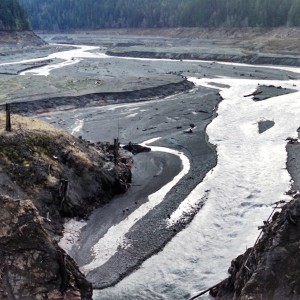The Stream, January 29: Brazil Cities Consider Major Water Rationing
The Global Rundown |
Sao Paulo could have its water supply cut to just two days per week as a severe drought continues, while state legislators in the United States are considering cutting water to the National Security Agency. Ireland’s government department charged with issuing water rebates does not have enough resources to do so. Approximately 90 percent of people in the United Kingdom believe in climate change, China has appointed a new environment minister, and South Africa is expecting power cuts until April. Scotland imposed a moratorium on fracking and other unconventional oil and gas extraction methods, while Pennsylvania is banning new oil and gas leases in state parks and forests.
“There has been a lack of transparency at every level of government.”–Juliana Serillo, economist at consultancy MB Associados, on Brazilian officials’ denial and lack of earlier action to address a severe water crisis. Officials in Sao Paulo recently said the city may ration water five days per week if rains continue to be below average, while other measures are being considered in Rio de Janeiro and Minas Gerais. (Bloomberg)
By The Numbers |
8 states Number considering legislation that would block the United States National Security Agency from receiving public utilities such as water and electricity. U.S. News and World Report
$113 Amount the Irish government pledged to provide to citizens to help pay for new water charges, but the department tasked with administering the rebates says it does not have the resources to do so. The Irish Times
Science, Studies, And Reports |
Nine in 10 people in the United Kingdom believe in climate change, while 15 percent of respondents identified it as a major threat to the country in the next two decades, according to a survey conducted by researchers at Cardiff University. Twenty-nine percent of people affected by recent bouts of major flooding identified climate change as a major, imminent threat. Guardian
On The Radar |
South African electricity utility Eskom ended rolling blackouts this week, but expects daily power cuts until April due to poor maintenance of power infrastructure. The most recent blackouts were caused by low water levels at dams. Bloomberg
China has appointed a new party chief for the country’s environment ministry, replacing a minister that has faced strong criticism for his failure to meaningfully address air and water pollution. Reuters
Scotland passed a moratorium on unconventional oil and gas extraction Wednesday, just days after the British Parliament decided against a moratorium on fracking across the United Kingdom. Guardian
Pennsylvania’s new governor, Tom Wolf, signed a moratorium on new oil and natural gas leases in state parks and forests in order to better protect the environment from hydraulic fracturing. Reuters
A news correspondent for Circle of Blue based out of Hawaii. She writes The Stream, Circle of Blue’s daily digest of international water news trends. Her interests include food security, ecology and the Great Lakes.
Contact Codi Kozacek







Leave a Reply
Want to join the discussion?Feel free to contribute!